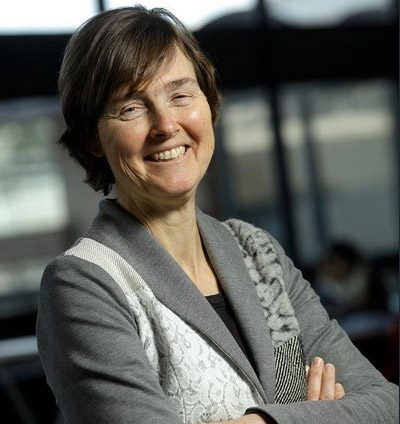
Department Seminar: Pieternel Levelt
Title: Air quality from space
Abstract: Atmospheric chemistry and the quality of the air we breathe have impacts on all life on earth. In the last few decades we have seen many significant improvements in air quality, especially compared to smog in the fifties, with extreme examples from London and Los Angeles. Improvements to air quality require an understanding of emissions, both natural and anthropogenic along with atmospheric chemistry. Our tools for measuring and predicting atmospheric composition have also evolved over this time as we moved from mostly ground-based instrumentation to including satellite observations and our capabilities for modelling atmospheric chemistry are increasingly more detailed and accurate. For example, innovative satellite instruments of Dutch origin, such as OMI and TROPOMI, now provide daily global maps of air pollution on urban scale resolution that have improved models and revolutionized air quality prediction.
During this seminar, I will first give an overview of NCAR/ACOM research, followed by some of the technology and achievements of the OMI and TROPOMI satellite instruments. I will show examples of changes to atmospheric composition, as observed by satellite, for the COVID-19 lockdowns and wildfires, including satellite images of the recent LA fires. I will further discuss new satellite concepts for the future, of which one is the CEOS initiative for expanding the geostationary satellite constellation to provide global measurements of diurnal changes in atmospheric composition. As an example of the motivation for this CEOS initiative, I will show recent findings on air quality in Africa, based on TROPOMI data, and why it will be critical to observe atmospheric changes in a region undergoing rapid urbanization and industrial development.
